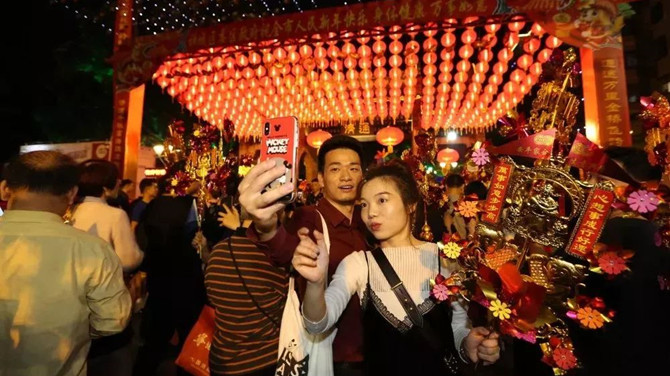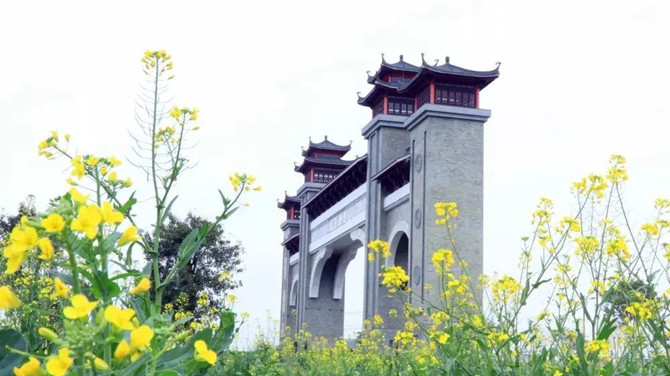When visiting relatives, Foshan people tend to get one’s wires crossed
There are various kinds of dialects in the five districts of Foshan. In ancient time, due to the underdeveloped transportation, different towns and districts of Foshan were separate from each other, thus forming a cultural phenomenon of one dialect in one area. Therefore, when visiting relatives, people from Nanhai District and those from Shunde District may not understand each other.
Red envelopes in Foshan emphasize the auspicious significance
The amount of money in Foshan people’s red envelopes can be little because what they emphasize is the good luck behind them. 5 yuan means that five blessings have descended upon the house. 10 yuan symbolizes perfectness in every way. 11 yuan indicates a promising new year. 18.88, 38.88 and 68.88 express wishes for fortune and wealth. So don’t mind the actual amount in the red envelope for there are many blessings behind them.
Fried glutinous rice balls are distinct in different areas of Foshan
Jiandui or fried glutinous rice balls are one of Foshan people’s favorite Spring Festival food. Family in different areas has their own distinctive fried glutinous rice balls. The fried glutinous rice balls in Jiujiang Town, Nanhai District is listed as the provincial intangible cultural heritage, which has a flat shape, rich fillings and crispy sweetness. In Nanzhuang Town, Chancheng District, glutinous rice balls are fried with dough while in Jiliwei, popcorn is used as fillings.
During the Lantern Festival, Foshan people will squeeze onto the most crowded small bridge

This small bridge is Tongji Bridge. With a length of 30 meters and a width of less than 10 meters, the bridge is built in the Ming Dynasty. There is a saying linked to the bridge which goes “cross the Tongji Bridge and you will have no worries”. Therefore, to walk on the bridge is a distinctive and popular activity on the Lantern Festival in Guangzhou and Foshan.
Foshan people will climb the Xiqiao Mountain, Zaomu Mountain and Shunfeng Mountain but not “Foshan Mountain”

Actually, there is no such mountain named Foshan Mountain in the city. But why the city is called Foshan? In ancient time, Foshan was named Jihua Xiang. In 628 AD, during the Tang dynasty (618–907), when three bronze Buddha statues were unearthed by local villagers, the site of the current city began to be called by its present name of Foshan, which means “Buddha’s Mountain”.
Spring Festival is not celebrated only in China
Besides China, there are many other countries in the world which celebrate the lunar new year. They are South Korea, North Korea, Vietnam, Malaysia, Singapore, Indonesia, Mauritius, Myanmar and Brunei.
Author | May
Revisor | Linn